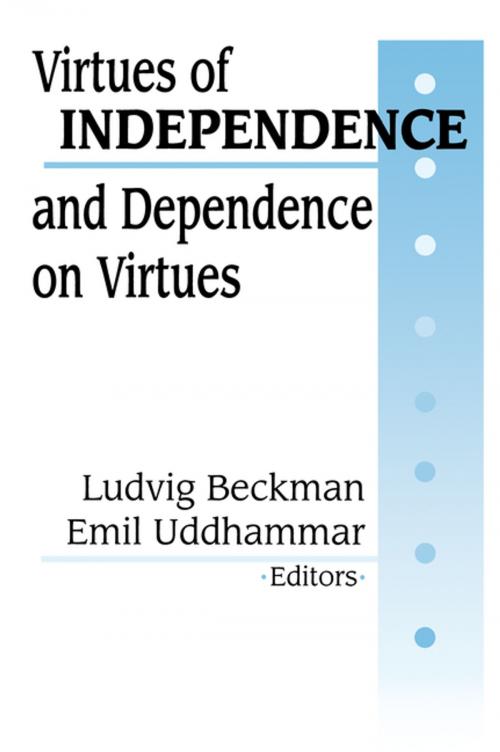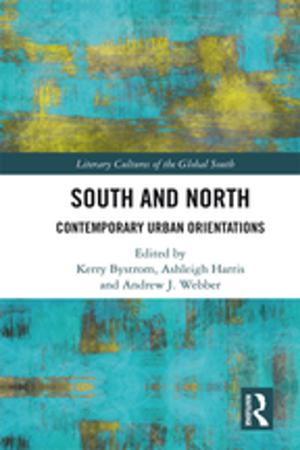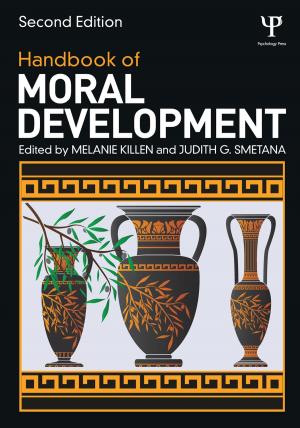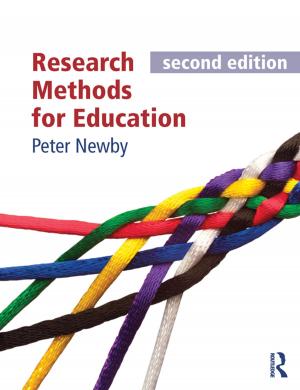Virtues of Independence and Dependence on Virtues
Nonfiction, Social & Cultural Studies, Political Science, Politics, History & Theory| Author: | ISBN: | 9781351323864 | |
| Publisher: | Taylor and Francis | Publication: | April 27, 2018 |
| Imprint: | Routledge | Language: | English |
| Author: | |
| ISBN: | 9781351323864 |
| Publisher: | Taylor and Francis |
| Publication: | April 27, 2018 |
| Imprint: | Routledge |
| Language: | English |
Debate about the concept of virtue is a persistent theme in academic discourse. One strand of thinking attempts to examine and reconstruct ethical theories with the aim of formulating a new morality or ethics. A second strand of thought, more strongly represented in this work, attempts to explore the social and political world deploying the concept of virtue. Thus, this volume crosses the established borders of academic disciplines in order to provide a richer and more comprehensive understanding of the place of virtues in contemporary western societies.The editors hold that the dominating virtue of our culture and society is the virtue of independence. Yet independence, or individual autonomy, is contingent upon a diverse, and so far ill-understood, set of cultural, biological, economic, ethical, and political practices. The idea of individuality is in other words supervening on a web of formal and informal relations. This volume therefore attempts to improve our understanding of the prevailing ethos of independence as well as of the mechanisms and practices sustaining it.Virtues are examined in specific contexts. Authors explore what we can learn about our dependence on virtues from the archaic Greek culture. They examine the relevance of virtue-ethics to the understanding of day-to-day practices. And they look at the place of virtues in understanding the norms of independence and liberty. Other contributions attend to the virtues of independence and its challenges, examining possible philosophical challenges, questioning whether independence is always a virtue, and how the virtues of justice fare given a commitment to the virtues of independence.The final portion of the book explore the empirical consequences of the virtues of independence. Among the questions addressed are how personal independence affects political and economic institutions, and the connections between norms of independence and the growth of modernity. This volume is an important contribution to contemporary understanding of what constitutes virtuous and ethical behavior.
Debate about the concept of virtue is a persistent theme in academic discourse. One strand of thinking attempts to examine and reconstruct ethical theories with the aim of formulating a new morality or ethics. A second strand of thought, more strongly represented in this work, attempts to explore the social and political world deploying the concept of virtue. Thus, this volume crosses the established borders of academic disciplines in order to provide a richer and more comprehensive understanding of the place of virtues in contemporary western societies.The editors hold that the dominating virtue of our culture and society is the virtue of independence. Yet independence, or individual autonomy, is contingent upon a diverse, and so far ill-understood, set of cultural, biological, economic, ethical, and political practices. The idea of individuality is in other words supervening on a web of formal and informal relations. This volume therefore attempts to improve our understanding of the prevailing ethos of independence as well as of the mechanisms and practices sustaining it.Virtues are examined in specific contexts. Authors explore what we can learn about our dependence on virtues from the archaic Greek culture. They examine the relevance of virtue-ethics to the understanding of day-to-day practices. And they look at the place of virtues in understanding the norms of independence and liberty. Other contributions attend to the virtues of independence and its challenges, examining possible philosophical challenges, questioning whether independence is always a virtue, and how the virtues of justice fare given a commitment to the virtues of independence.The final portion of the book explore the empirical consequences of the virtues of independence. Among the questions addressed are how personal independence affects political and economic institutions, and the connections between norms of independence and the growth of modernity. This volume is an important contribution to contemporary understanding of what constitutes virtuous and ethical behavior.















